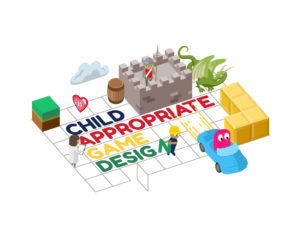
The Kids Play Tech Lab (formerly the Critical Games Lab) is dedicated to exploring the “big picture” social and theoretical questions that surround children’s diverse and deepening relationships with media and digital technologies, with an emphasis on games, toys, and play. The lab was created to support, initiate, and conduct practical, community-engaged research collaborations and projects that advance ethical, inclusive, child-centred, and rights-based design guidelines and policy recommendations, with and for cross-sector partners. In addition to producing cutting-edge and theoretically grounded empirical research, the Kids Play Tech Lab is committed to fostering a space for public discussions and consultations, and for the creation of accessible tools, guidelines, and other knowledge media aimed at supporting children and families, the GLAM, media, and technology sectors, educators and caregivers, as well as policymakers and children’s advocates.
Through research, community outreach, knowledge mobilization, and innovative methodologies, projects housed at the Kids Play Tech Lab address critical issues relating to children’s evolving relationships with digital games and playful technologies as they emerge, in ways that advance children’s rights, social justice, and inclusive design.
Current Project:
The Child Appropriate Game Design (CAGD) Project (2021-2024)
The Children and Age-Appropriate Game Design (or “Child Appropriate Game Design” (CAGD) for short) project is a collaboration between Dr. Sara M. Grimes (University of Toronto), Dr. Darshana Jayemanne (Abertay University, Scotland) and Dr. Seth Giddings (University of Southampton, England) that will produce timely, cross-cultural, cross-sector, cross-generational, and child-centered research aimed at deepening our understanding of how ideas about “age appropriateness” shape children’s game design, regulation, and play.
Through focus groups and interviews with child players and children’s game designers, policy analysis, and design analysis, this project will provide crucial insight into key challenges and opportunities found within the contemporary children’s digital game landscape, while tracking the impact of the “age appropriate design” (AAD) movement on emerging regulatory approaches, industry practices, and user expectations. Our findings will play a crucial role in guiding both policy development and the game industry’s approach to child players over the coming years, while ensuring that children’s rights, needs and vulnerabilities are better supported in regulatory responses and in future definitions and applications of AAD across the digital environment.
This project is being funded by the Social Sciences and Humanities Research Council (SSHRC) of Canada, Insight Grant program. Dr. Jayemanne’s contributions are supported by InGAME: Innovation for Games and Media Enterprise, funded by the Arts and Humanities Research Council (AH/S002871/1).
